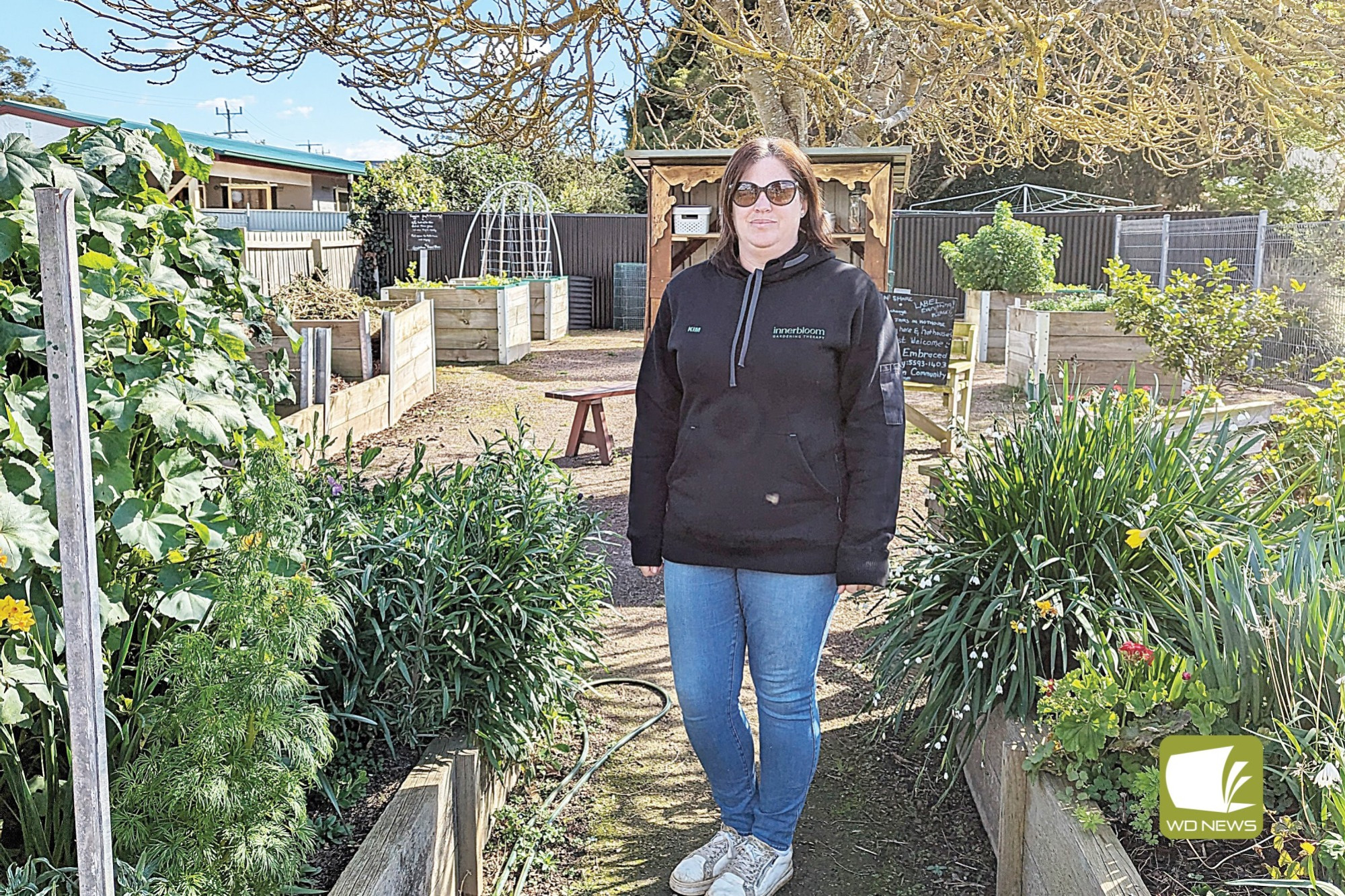General News
14 September, 2023
Community House announces new partnership
CAMPERDOWN and District Community House has entered into a new partnership with Inner Bloom Gardening Therapy.

CAMPERDOWN and District Community House has entered into a new partnership with Inner Bloom Gardening Therapy.
Inner Bloom is a new business based in Camperdown and surrounding region.
Camperdown Community House coordinator Emily Mercer said Inner Bloom identified a need in the community for a different approach to managing mental health conditions, loneliness and isolation and have designed gardening therapy programs to foster a sense of wellbeing and connection in a safe and nurturing space.
“There have been significant challenges since 2020 that did not allow for the traditional model of community gardens, individual ‘ownership’/easing of garden plots, to feasibly and practically continue,” she said.
“This model did not always work particularly well for our community and how people were engaging with the garden space, even before the pandemic.
“Since then, we have been remodelling the community garden to broaden the scope of how our community can engage with the space and get involved and have developed collective/community-
based projects as permanent installations in some of the garden beds, such as the sensory garden and local Indigenous plant garden.
“We now host the Camperdown and District Swap and Share Stall, which has over 300 members.”
Ms Mercer said as part of the new model, Camperdown Community House has set aside a number of garden plots to be available to the broader community for lease, in particular to encourage local community groups, schools or businesses to engage in the community garden for short, medium and/or longer-term projects in order diversify reach and engagement across the community.
“Inner Bloom are a perfect fit for this arrangement and bring something unique and important not only to the Camperdown Community Garden Hub and related programs, but to our wider community as a whole,” she said.
“There is an increase in need for mental health support in our region and a number of barriers for people to access the support and medical care needed.”
“Some of the challenges include:
• Increase in cost to see GPs, counsellor and psychologists;
• Difficulties finding/identifying the right support; and
• While clinical services may be available to treat acute mental illness, there is a lack of community based non-clinical ongoing care and support.
“Gardening Therapy is gaining recognition as a therapeutic tool for various mental health conditions, Ms Mercer said.”
The benefits of gardening therapy include:
• Combating loneliness and social isolation;
• Increasing one’s sense of purpose, accomplishment, self-esteem and self-confidence;
• Enhancing inter-communication skills;
• Assisting in managing emotions;
• Managing past traumas and events;
• Fostering a sense of connection and community belonging;
• Providing life-long tools;
• Accessibility through reclaiming costs through NDIS, aged care and other agencies and providers; and
• Accessible and flexible times and places for therapeutic activity.
Ms Mercer said Inner Bloom Gardening Therapy is aiming to establish a garden therapy model similar to the Wild Works projects in Geelong.
“Wild Works projects in Geelong are very successful in creating a garden therapy programs with the Grinter Community Garden, along with establishing a network of partnerships that have provided
access to further learning, personal development and capacity building for individuals engaging with her programs,” she said.
“This is innovative and important work at a time when the need for mental health support and access to community-based therapy is at an all-time high.
“Camperdown and District Community House is committed to working in partnership and support of Inner Bloom to help them establish a sustainable and ongoing model to provide mental health and
wellbeing programs through garden therapy in our community garden hub for the foreseeable future.
“We believe this is filling a much-needed gap in service provision and community support and recognition of mental health needs in our community. We will all be better for it.”